W.H.O TUBERCULOSIS EPIDEMIOLOGICAL REVIEW – PUNJAB PAKISTAN 2025
Table of Contents
- Executive Summary
- Introduction and Mission Objectives
- Mission Team and Provincial Participants
- Mission Activities: Detailed Chronology
- Key Findings
- Conclusions and Recommendations
- Way Forward
- Picture Gallery
-
Executive Summary
The World Health Organization (WHO) conducted a high-level epidemiological review of the Punjab TB Control Program on 10–11 July 2025, as part of Pakistan’s broader strategic assessment for TB elimination. Punjab, the most populous province, contributes nearly 60% of Pakistan’s total TB burden, with 290,000 reported TB cases and 2,100 drug-resistant TB (DR-TB) cases in 2024 alone—underscoring its pivotal role in meeting national and global TB targets.
The mission was steered by Dr. Qasim Mehmood, Senior Provincial Program Officer and the officially designated Focal Person for the development of Punjab’s Strategic Plan 2027–2029. The mission involved in-depth program briefings, facility evaluations, and assessments of Punjab’s digital health infrastructure.
The findings will directly inform the National Strategic Plan (NSP), Provincial Strategic Plans (PSPs), and funding frameworks for the upcoming Global Fund Grant Cycle (2026–2028).
-
Introduction and Mission Objectives
This mission aimed to:
- Assess the epidemiological landscape of TB in Punjab.
- Review progress on strategic priorities set under the PSP 2024–2026.
- Identify operational bottlenecks in DR-TB services and digital surveillance systems.
- Provide strategic guidance for the formulation of PSP 2027–2029.
- Align provincial strategies with WHO’s End TB Framework and Global Fund priorities.
-
Mission Team and Provincial Participants
WHO Delegation
| Name | Affiliation | Role |
| Dr. Charalampos (Babis) | WHO HQ, Geneva | Team Lead; Global TB Surveillance & Policy Expert |
| Dr. Cicilia Gita Parwati | WHO HQ | Technical Officer – Digital TB Data Systems |
| Dr. Ghada Muhjazi | WHO EMRO, Cairo | Technical Officer – Global Fund Coordination |
| Dr. Narantuya Jadambaa | WHO Pakistan | Medical Officer; CD/NCD Cluster Lead |
| Dr. Khawaja Laeeq Ahmad | WHO Pakistan | National Professional Officer – TB |
Punjab TB Control Program (PTP) Team
| Name | Designation | Role |
| Dr. M. Talha Zia Khan | Program Director | Overall program oversight |
| Dr. Bilal Ahmed Khan | Deputy Director | Strategic and operational support |
| Dr. Umer Awan | Deputy Director | Supervision and implementation |
| Dr. Qasim Mehmood | Senior Provincial Program Officer | Focal Person: PSP 2027–2029
|
Dr. Qasim Mehmood led all coordination and technical inputs on behalf of PTP Punjab. He synthesized epidemiological data, engaged stakeholders, and facilitated alignment of mission findings with future provincial priorities
-
Mission Activities: Detailed Chronology
Day 1 – 10 July 2025
09:00–11:00 | Program Briefing
Led by Dr. Qasim Mehmood, the mission opened with a comprehensive presentation on the status of the PSP 2024–2026. Key highlights included:
- Case detection achievement at 78% of the annual target.
- Treatment success rates, especially under public-private partnerships.
- Identification of gaps in DR-TB diagnostic access and delays in treatment initiation.
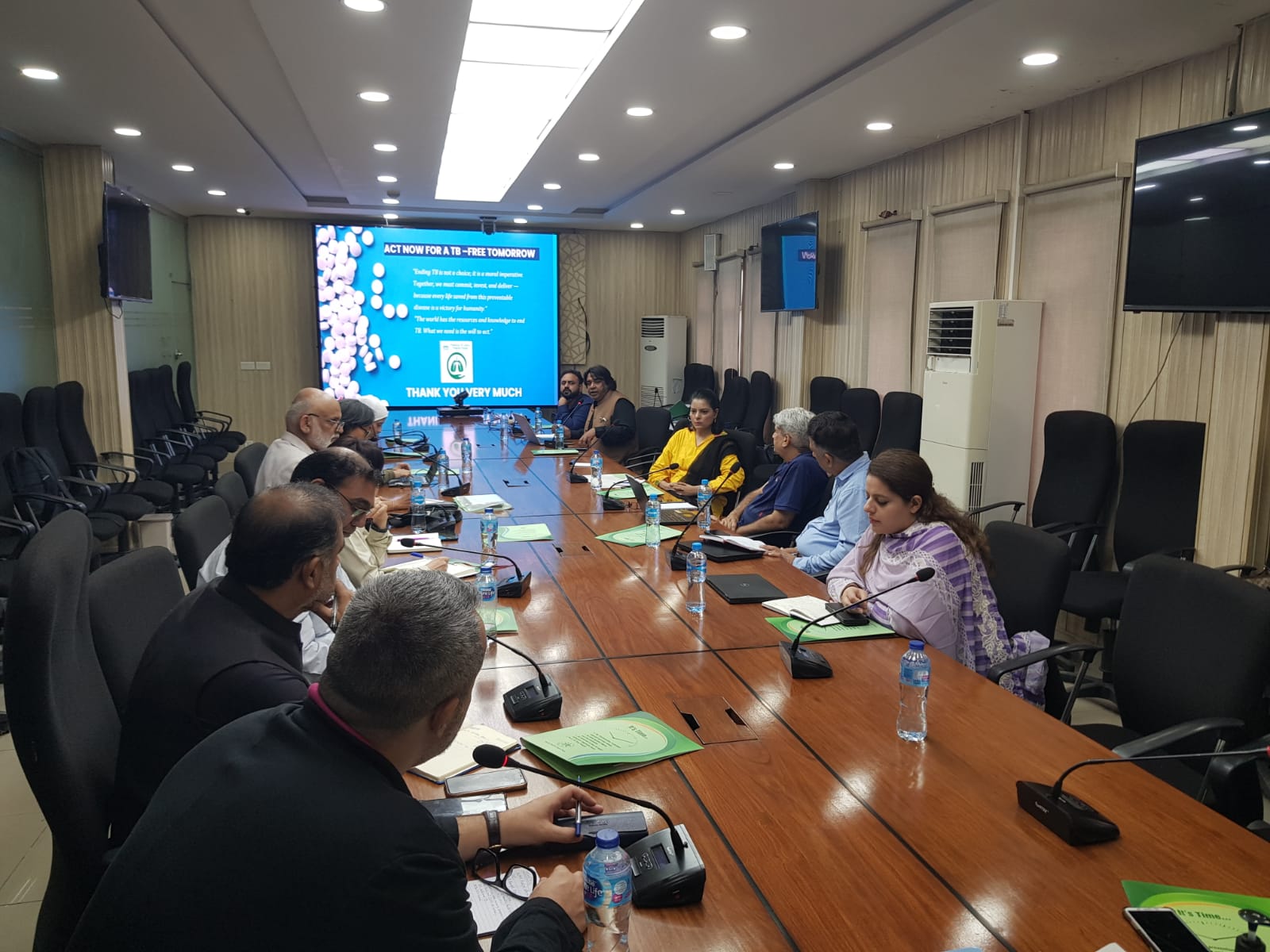
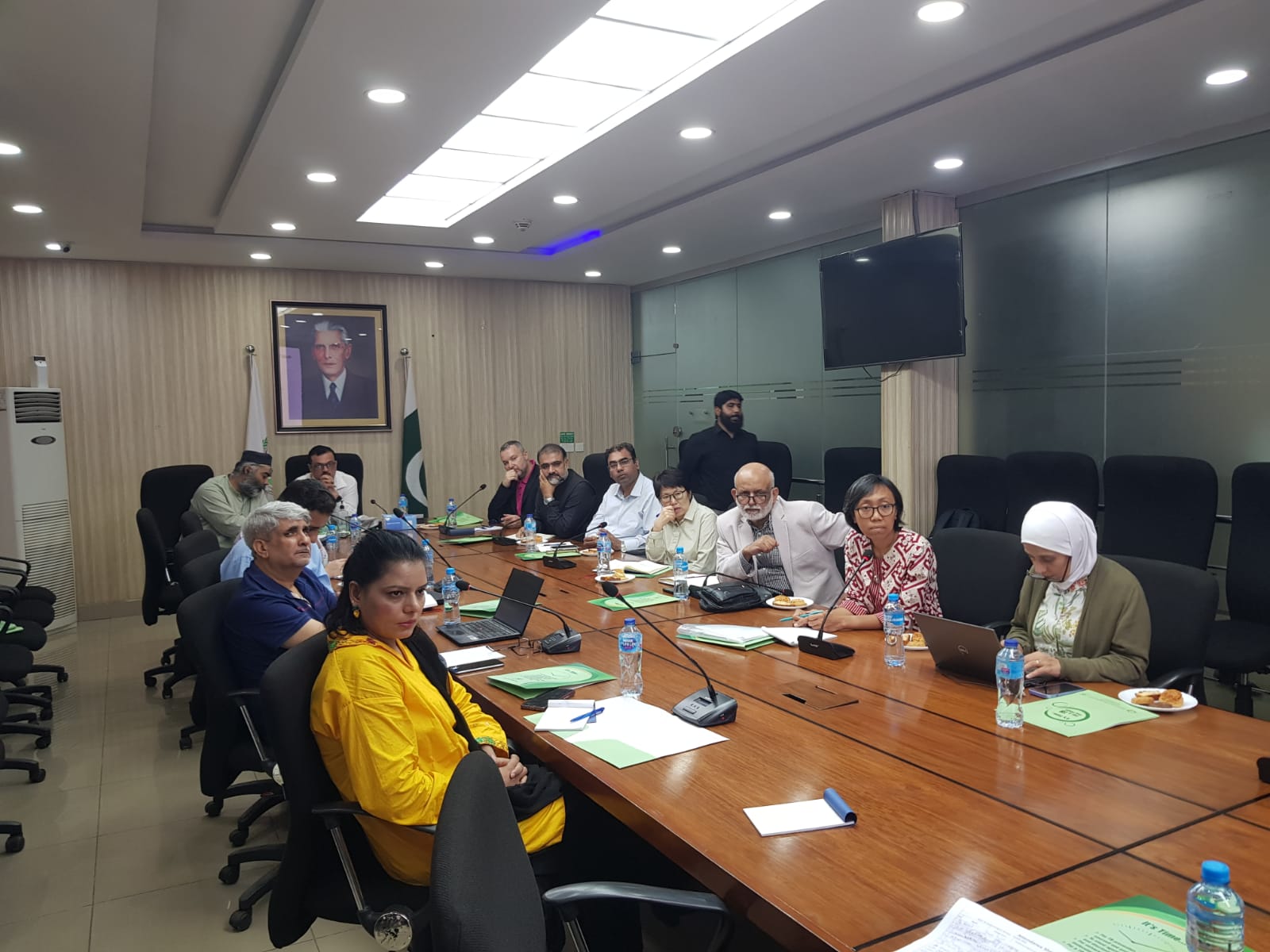
11:00–12:30 | Technical Q&A Session
WHO delegates conducted a detailed interrogation of:
- Data quality and reporting frequency
- Equity gaps in service delivery
- Bottlenecks in DR-TB diagnostic timelines
Dr. Qasim Mehmood responded with data-backed clarifications and shared projections for the upcoming PSP.
14:00–16:00 | Field Visits
Provincial Reference Laboratory (PRL), Lahore – BSL-III Facility
The WHO Mission conducted an extensive site visit of the Provincial Reference Laboratory (BSL-III) located in Lahore, the central diagnostic hub for complex TB testing in Punjab. The visit focused on the operational scope, workload, and quality control measures of the facility.
Scope of Testing Services:
The PRL Lahore offers a comprehensive range of diagnostic and drug resistance testing services, including:
- AFB Smear Microscopy for pulmonary TB detection
- GeneXpert MTB/RIF and XDR Assay for rapid diagnosis and rifampicin resistance screening
- MTB Culture for viable mycobacteria growth and confirmation
- Drug Susceptibility Testing (DST) for both first- and second-line anti-TB drugs
Specimen Referral Network:
The laboratory receives samples from an extensive network of designated referring sites across Punjab, highlighting its critical role in diagnostic cascade management and DR-TB surveillance.
Current Daily Workload and Capacity:
- The lab handles high daily throughput of diagnostic specimens, especially for GeneXpert and DST testing.
- Staff manage specimen registration, processing, and result dissemination in accordance with national biosafety protocols.
Workload Overview:
Based on data from Q1 and Q2 of 2025, the PRL processed the following:
- MTB Culture and DST workload increased significantly due to rising referrals from both public and private providers.
- The PRL continues to function as the backbone of drug resistance surveillance and early detection of DR and XDR-TB.
Key Observations from WHO Mission:
- GeneXpert machine utilization was found to be optimal, with minimal downtime and regular calibration.
- There is a need to expand second-line DST services, especially in light of increasing XDR-TB detection through GeneXpert XDR cartridges.
- Sample referral turnaround time was within acceptable limits; however, pre-treatment counseling and linkage to PMDT care for DR-TB patients still require strengthening.
Recommendations:
- Scale-up capacity for XDR testing and DST at the PRL and satellite labs.
- Digitize specimen tracking to minimize lost samples and reporting delays.
- Improve integration with case-based digital surveillance to enable real-time epidemiological insights.
Private Practitioner (Dr. Iftikhar)
Review of PPM engagement, adherence to case notification protocols, and private sector data integration
Day 2 – 11 July 2025
09:00–12:00 | Visit to Gulab Devi Hospital
- Institutional Briefing: Overview of the hospital’s strategic role in TB diagnosis and treatment.
- Ward and Lab Walkthroughs:
- Drug-Sensitive TB Ward: Patient triage, infection control standards, and clinical workforce capacity.
- TB Laboratory: Smear microscopy and culture processing workflows, diagnostic turnaround time.
- PMDT Site: Monitoring of DR-TB patient adherence, side effect management, and follow-up systems.
14:00–16:00 | Digital Health Systems Demonstration
- Medicine Inventory Management System (MIMS): Real-time tracking of TB drugs at provincial and district levels.
- Hospital Management Information System (HMIS): Demonstrated integration with DHIS2 for efficient case notification and reporting.
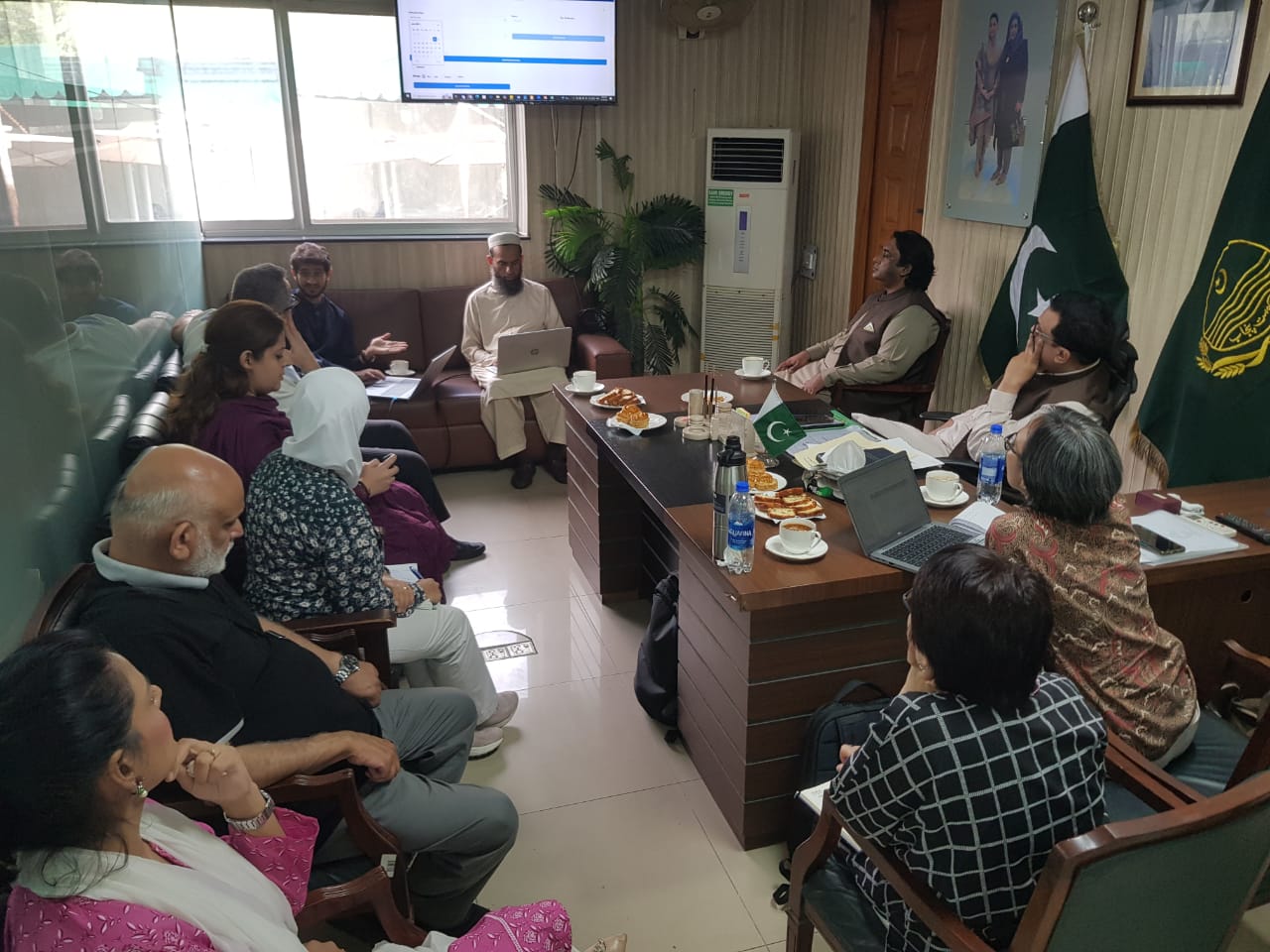
-
Key Findings
- Substantial progress was observed in TB case detection, treatment outcomes, and private-sector engagement.
- However, gaps remain in:
- DR-TB diagnostic coverage and early treatment linkage
- Digital integration across EMR, HMIS, and DHIS2
- Equity-focused interventions for marginalized populations
- Strong leadership, particularly by the PSP Focal Person, was instrumental in bridging federal-province-donor coordination.
-
Conclusions and Recommendations
Role of PSP Focal Person – Dr. Qasim Mehmood
Dr. Qasim Mehmood’s contributions significantly shaped the mission’s success. His role included:
- Epidemiological Data Synthesis
- Translating raw surveillance data into strategic priorities.
- Stakeholder Coordination
- Facilitating discussions between WHO, federal units, PTP, and private partners.
- Gap Identification
- Mapping diagnostic and reporting weaknesses to formulate targeted interventions.
- Resource Mobilization Alignment
- Ensuring PSP priorities reflect Global Fund allocation themes.
-
Way Forward
Dr. Qasim Mehmood will chair the PSP 2027–2029 drafting committee, ensuring that WHO’s recommendations are translated into:
-
- District-specific targets for DR-TB control and elimination
- Digital transformation roadmaps for integrated surveillance
- Action plans for high-risk populations (e.g., prisoners, migrants, and the urban poor)
- Final PSP draft will be submitted to WHO EMRO by 30 November 2025 for technical review and validation.
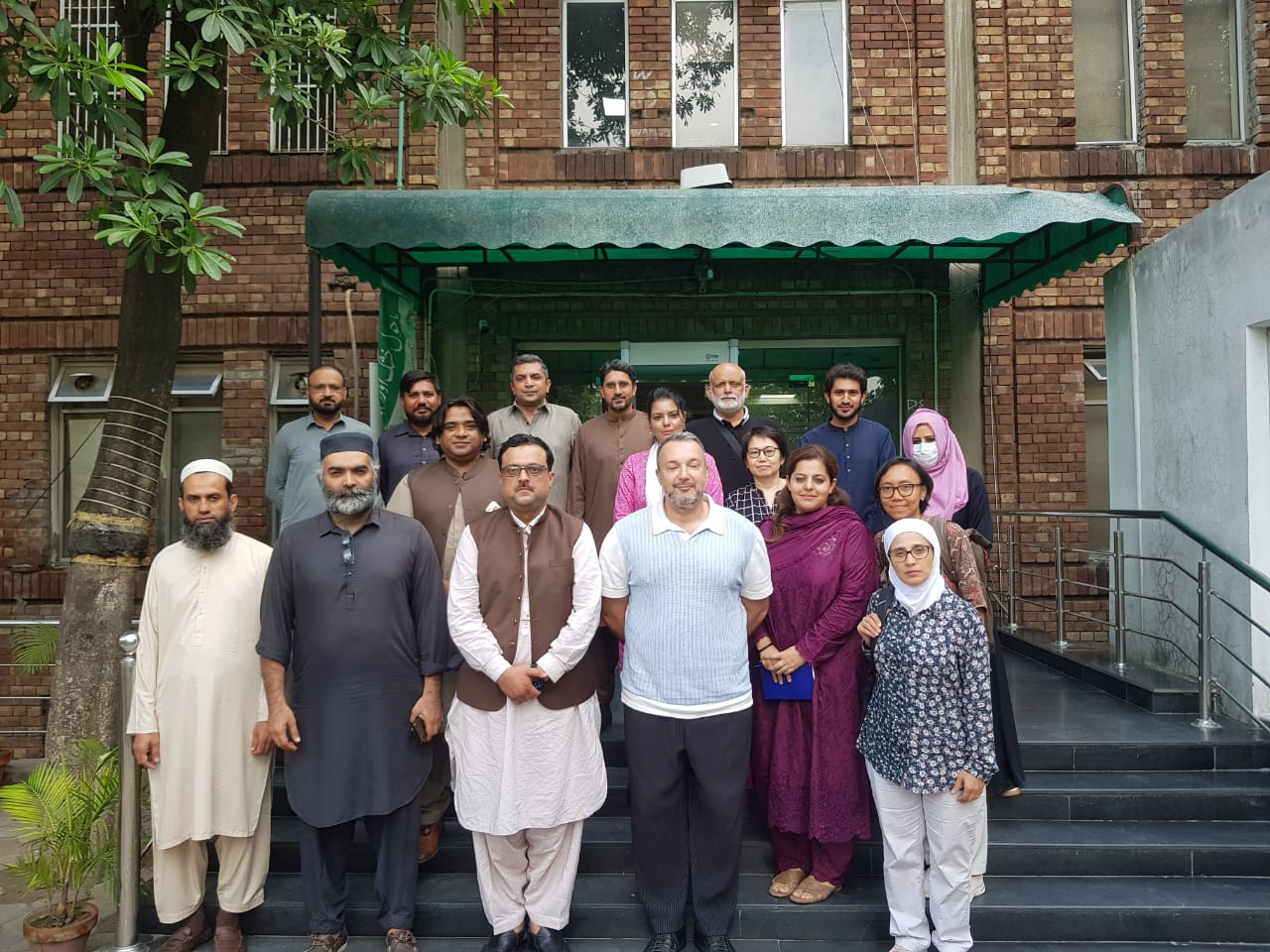
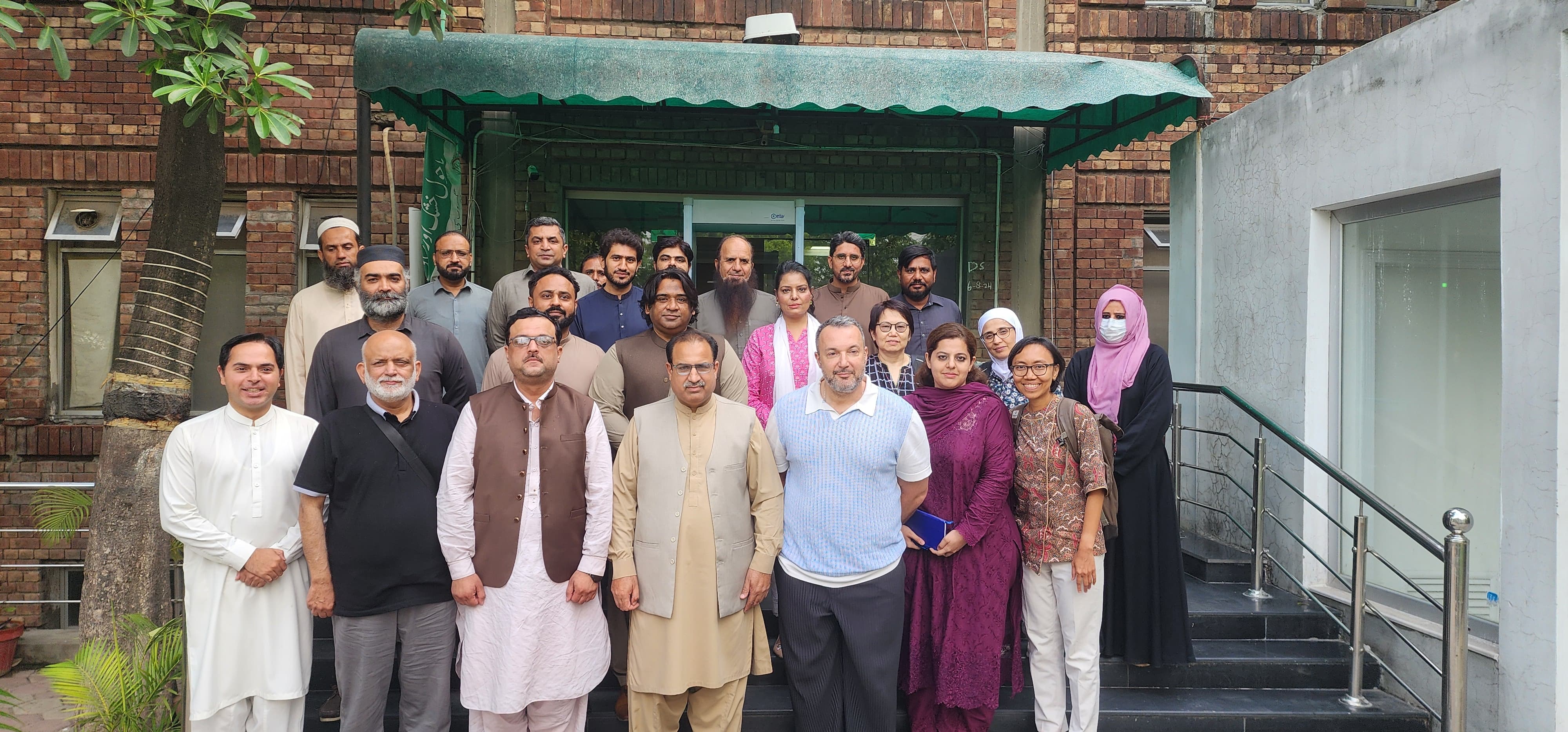
0 Comments